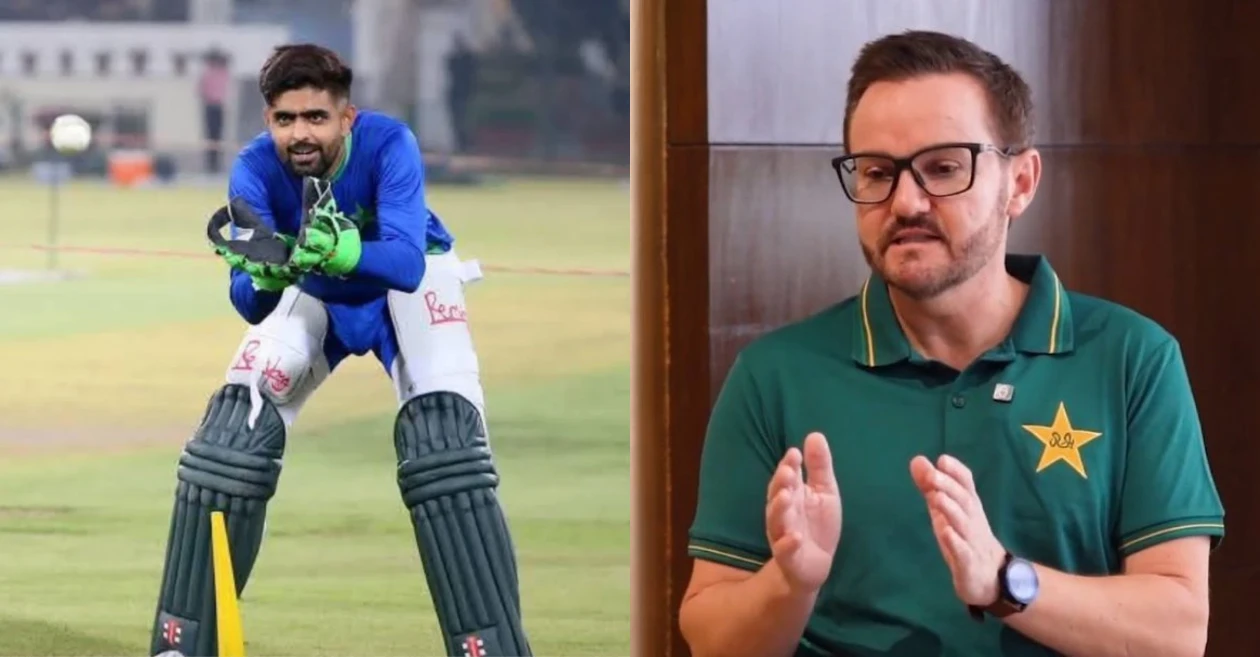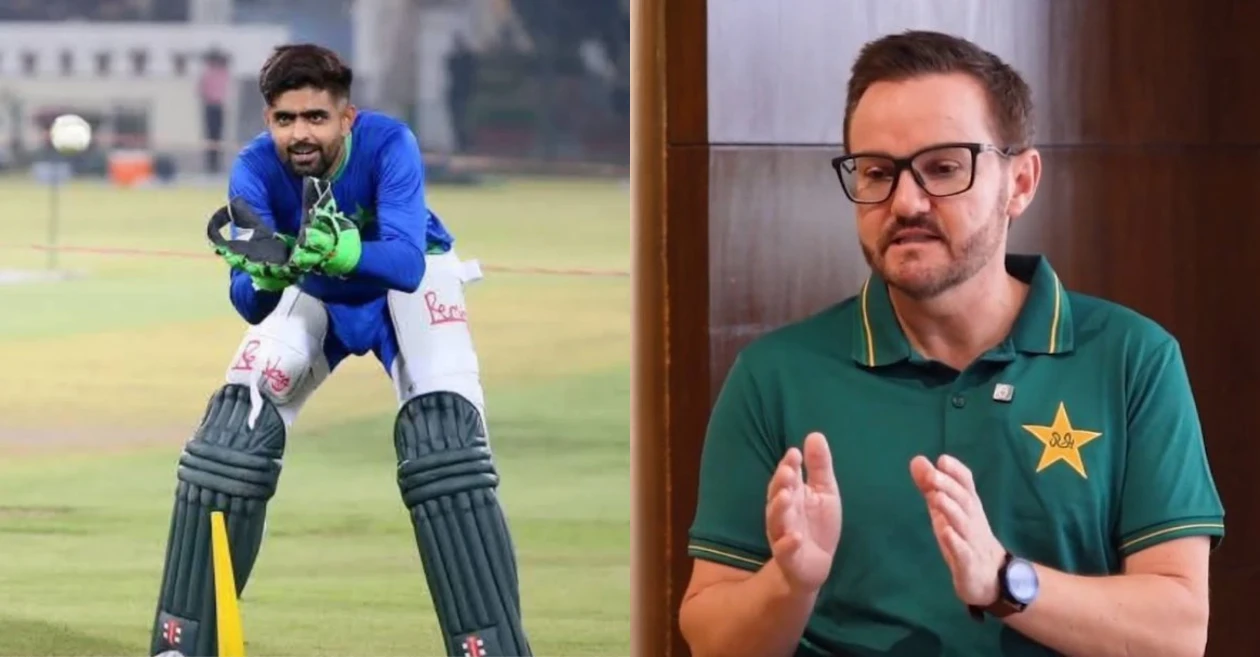
The Pakistan cricket landscape was abuzz with speculation this week, following the shock exclusion of former captain Babar Azam from the national squad for the upcoming T20I series against Bangladesh.
Reports of Mike Hesson advising Babar Azam to don the gloves
While Babar’s omission itself sparked a flurry of debate, the conversation was further complicated by a report suggesting that Pakistan’s white-ball coach, Mike Hesson, had recommended the star batter take up a new, unprecedented role: wicket-keeper. This claim drew swift and sharp criticism from several former Pakistani cricketers, prompting Hesson to publicly clarify the situation and address other persistent rumours about his coaching philosophy.
The controversy began when reports surfaced linking Hesson to the idea of Babar donning the wicket-keeping gloves. This highly unusual suggestion for a player who has never kept wickets in his professional career was met with outrage from former Pakistan coaches, Mohsin Khan and Basit Ali. The criticism from figures like Rashid Latif and Sikander Bakht further amplified the pressure on the Pakistan Cricket Board (PCB) and the new coaching staff.
Mike Hesson debunks the misinformation and defines a new approach for Babar Azam
Speaking to reporters, Hesson categorically denied the claims. “No discussion took place with Babar where I suggested he also keep wickets. He has never kept wickets in his entire career and you suggest he keeps wickets. This is not the way to treat a former captain and senior,” Hesson said, as reported by PTI. The statement served as a direct refutation of the circulating rumours and provided much-needed clarity on the matter. Hesson further reaffirmed that if Babar were to make his return to the T20I side, it would be in his familiar and proven role as an opener. This confirmation will come as a relief to Babar’s legions of fans and puts an end to the speculation about a drastic role change for the 30-year-old.
Hesson also took the opportunity to address another rumour concerning his coaching strategy—the claim that he had mandated a minimum strike rate of 150 for all batters to retain their places in the squad. “I have also not told the players that if they want to keep their places in the team they have to bat at strike rates of over 150. We are working on some things in this direction,” he clarified. While denying the existence of a rigid, performance-based ultimatum, Hesson’s comments underscored his belief that the team’s batting unit needs to evolve to meet the demands of modern T20 cricket. He explained that he is working in tandem with the selectors to build a dynamic and young T20 squad that can adapt to different match situations. “We are looking at players who are ready to float in the batting order and perform multiple roles but that does not mean there will be no spot for specialist players,” he added, indicating a move towards a more flexible and adaptable batting lineup without completely abandoning traditional roles.
The new-look Pakistan squad, sans some of its most senior members, is set to face Bangladesh in a three-match T20I series, with all matches scheduled to be played at the Sher-e-Bangla National Stadium in Mirpur, starting July 20. The series will serve as the first real test of Hesson’s new approach and provide insight into the future direction of Pakistan’s white-ball cricket.
Also WATCH: Bollywood actor Aamir Khan blames Pakistan’s Javed Miandad for spoiling his wedding day with Reena Dutta

